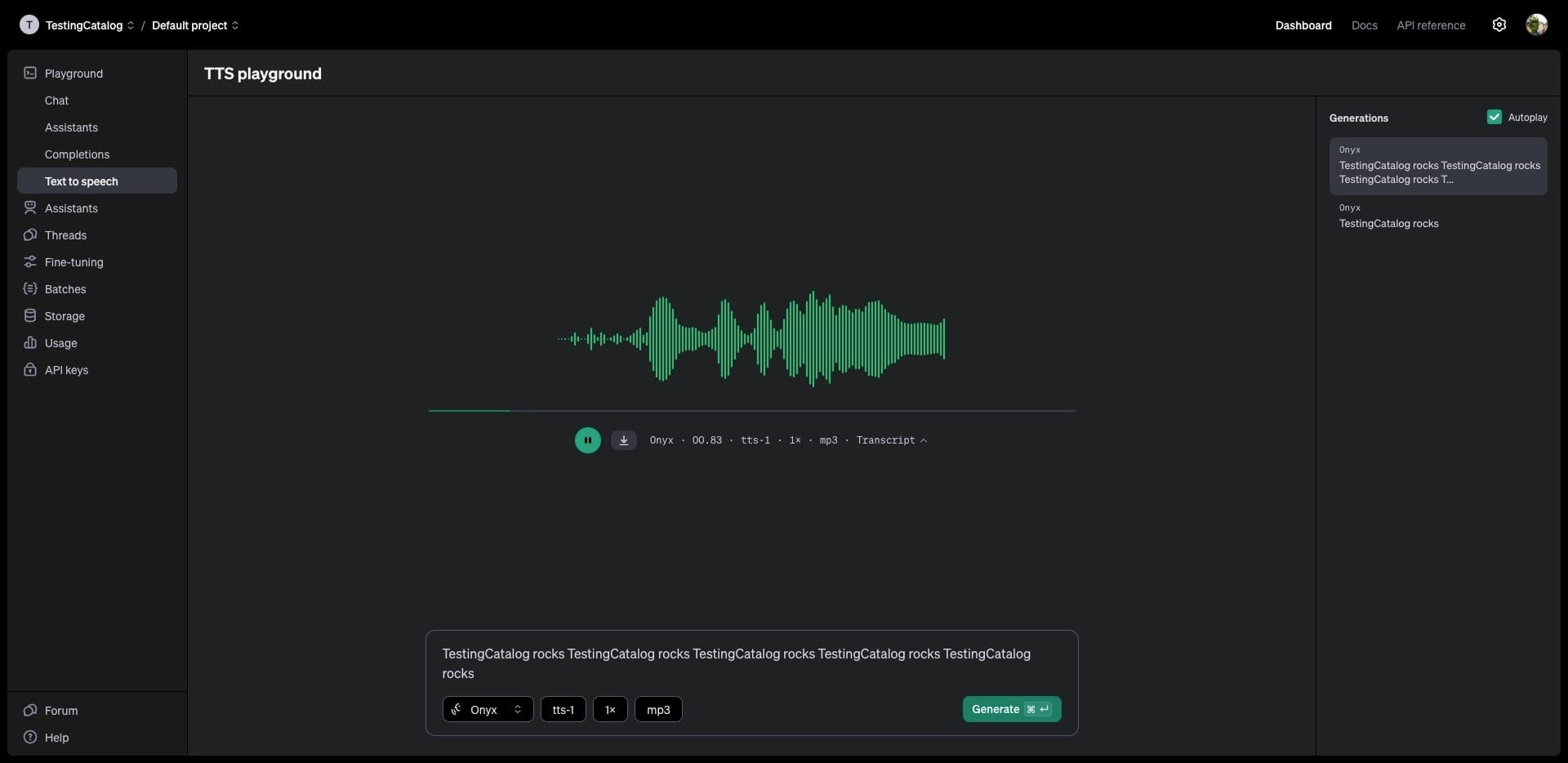OpenAI has recently announced an exciting update to their text-to-speech (TTS) API by integrating it into their Playground environment, making it even more accessible for developers and users to experiment with this technology. This new feature allows users to easily generate audio from text using one of six preset voices, streamlining the process of creating spoken content from written text.
The New TTS Feature in OpenAI's Playground
The text-to-speech API is now available directly in the OpenAI Playground. This integration offers several key benefits:
- Ease of Use: Users can simply enter a message into the Playground interface to generate audio, eliminating the need for complex setup or coding.
- Quick Testing: Developers and content creators can rapidly test different voices and text inputs without setting up a separate environment.
- Accessibility: The feature makes it easier for a wider range of users to explore OpenAI's TTS capabilities, potentially spurring more innovative applications.
We're making building with the text-to-speech API even easier by adding it to the Playground! Just enter a message to generate audio in one of six preset voices. https://t.co/1yb4NJMg30 pic.twitter.com/BuU33iykGG
— OpenAI Developers (@OpenAIDevs) July 10, 2024
OpenAI's Text-to-Speech API Overview
OpenAI's TTS API is a powerful tool that converts text into natural-sounding spoken audio. Here are some key features:
- Two Model Variants:
tts-1: Optimized for real-time use casestts-1-hd: Optimized for higher quality audio
- Six Preset Voices: The API offers a choice of six different voices named alloy, echo, fable, onyx, nova, and shimmer.
- Multiple Language Support: While optimized for English, the API can generate spoken audio in numerous languages.
- Customization Options: Users can adjust parameters such as output format (mp3, opus, aac, flac, pcm) and streaming capabilities.
Implications and Use Cases
This integration of the TTS API into the Playground environment has several implications:
- Lowered Barrier to Entry: It allows more people to experiment with TTS technology without needing extensive technical knowledge.
- Rapid Prototyping: Developers can quickly test ideas and concepts before integrating the API into their applications.
- Content Creation: Writers, podcasters, and content creators can easily convert their written work into audio format for wider distribution[3].
- Accessibility Improvements: It enables the quick creation of audio versions of text content, improving accessibility for visually impaired users.
- Educational Tools: Teachers and educational platforms can create audio materials more easily, enhancing learning experiences.
Company Focus and Recent Updates
This update aligns with OpenAI's ongoing efforts to make AI technologies more accessible and user-friendly. By integrating the TTS API into the Playground, OpenAI is continuing its trend of simplifying complex AI tools for a broader audience, similar to their approach with ChatGPT and other language models.
While specific details about future updates are not provided in the search results, this move suggests that OpenAI is likely to continue enhancing and integrating its various AI technologies into more user-friendly interfaces, potentially leading to further innovations in how developers and end-users interact with AI tools.
In conclusion, the addition of the text-to-speech API to OpenAI's Playground represents a significant step in making advanced AI technologies more accessible and easier to use. This update not only simplifies the process of generating spoken audio from text but also opens up new possibilities for developers, content creators, and businesses to incorporate high-quality text-to-speech capabilities into their projects and applications.






